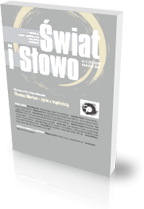Not only foulmouthed words:
suggested methods for slang translation
Not only foulmouthed words:
suggested methods for slang translation
Author(s): Maciej NiemiecSubject(s): Language and Literature Studies, Applied Linguistics, Descriptive linguistics, Translation Studies
Published by: Akademia Techniczno-Humanistyczna w Bielsku-Białej
Keywords: slang;translation methods;informal language;identity;
Summary/Abstract: Slang is an informal variation of language and is usually limited to a specific group of people. The instability and evanescence of slang reflects the characterof the groups that use it, especially those groups whose composition undergoes rapid changes, as in the case of school youth. As a consequence, some expressions gain new meanings, adequate to current trends, while others are forgotten. Moreover, slang is more than just words: it can be used by people as a particularly sensitive tool to express their feelings or ideas. It is closely related to the more or less conscious construction of group identity in opposition to mainstream culture; being a manifestation of difference, it also creates a sense of belonging. Due to the complexity of the language layer and its cultural background, slang can pose problems when translating it from the source language to the target language in such a way that it retains its original meaning. In my article, I proposed methods of translating slang based on cognitive approach and presented them with the use of examples. These examples are various slang terms that have appeared in selected publications - these expressions were analyzed from a translational point of view and in terms of their actual meaning.
Journal: Świat i słowo
- Issue Year: 2/2017
- Issue No: 29
- Page Range: 235-252
- Page Count: 18
- Language: English

